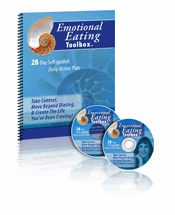 What if I told you there was a simple, five minute ritual that research has shown can actually increases someone's level of happiness and reduce symptoms of depression? What if I told you that either the ritual or the results (or both) were so compelling that six months after researchers first introduced the technique to their subjects, they were astounded to find that many of them were still using it even though the study had ended after the first week. Would you be interested?
What if I told you there was a simple, five minute ritual that research has shown can actually increases someone's level of happiness and reduce symptoms of depression? What if I told you that either the ritual or the results (or both) were so compelling that six months after researchers first introduced the technique to their subjects, they were astounded to find that many of them were still using it even though the study had ended after the first week. Would you be interested?
We spend so much time thinking about problems and how to solve them. Some of our brain seems to be wired to focus on the things that don't work and that we want repaired. The truth is, there are some delightful, easy things we can do to enrich our lives and they don't have to take a lot of money or time. The good life doesn't require private jets and a lot of time. The good life comes from aiming consistently for "a better life." I'm talking about the small things we can do to keep the good feelings, the good relationships, or to make things even a bit brighter or nicer. It's like making sure we are applying fertilizer regularly and also making sure the set-up of our life allows us to notice and savor the parts of it we truly love.
What am I talking about? Well it's different for everyone, but here are some ideas: recently, I wrote about the power of music to transform your mood, your activity, and to help feed your spirit. Sometimes taking the time to put on a CD or grab your mp3 player is all you need to make whatever you are doing one notch better. One of my favorite inventions in the world is my coffee maker with a timer on it. Even better is that my incredible husband gets things ready every evening so in the morning when I stumble downstairs, I am greeted by the smell of a great pot of coffee. For me, it makes starting every day perfect, no matter what happens after that.
I have a friend who makes sure she always has cut flowers from her yard on her desk. It truly adds to the quality of her day. Someone else cherishes her morning and evening walks alone with her dog. They help reset her brain and her mood for the next part of her day. In our family, a face-to-face start and end of the day are important. I cherish saying good morning to everyone and wishing them a good night's sleep at the end of the day. If someone isn't home for the night, I find I really really miss that ritual.
Another idea suggested to me was to set aside five minutes every day to send a brief email or make a phone call to a friend you haven't talked to lately. Just to connect and say you were thinking about them or to deliver a compliment.
Think about it. What are the routines and rituals that you already have in place that make your life good? What rituals (remember, I'm talking short and sweet) could you add that would make your good life one notch better? This isn't a rhetorical question. Share your good life routines by adding a comment below. We can all learn from each other.
If you are you curious about the study I mentioned at the beginning, you can read the details here. In the study, participants were asked to take the time each evening to write down three good things that happened each day and their causes. After one week, researchers found that subjects who had kept track of the three good things reported higher levels of happiness and fewer symptoms of depression. While they were not surprised, they were delighted to find that when they retested these subjects three months and then six months after the study ended, these subjects STILL reported increased happiness and decreased symptoms of depression. It turns out that the research subjects had found the ritual so satisfying that they had continued it on their own! You might want to consider the Three Good Things exercise as another routine that can make your good life better.
If you are looking for more ways to add good stuff to your life, check out my complimentary Self-care Package. You can subscribe in the upper right corner of this blog and when you do, you will receive five weekly audio lessons (short!) that you can listen to on your computer.
Take good care,
Melissa








 Slow down
Slow down






